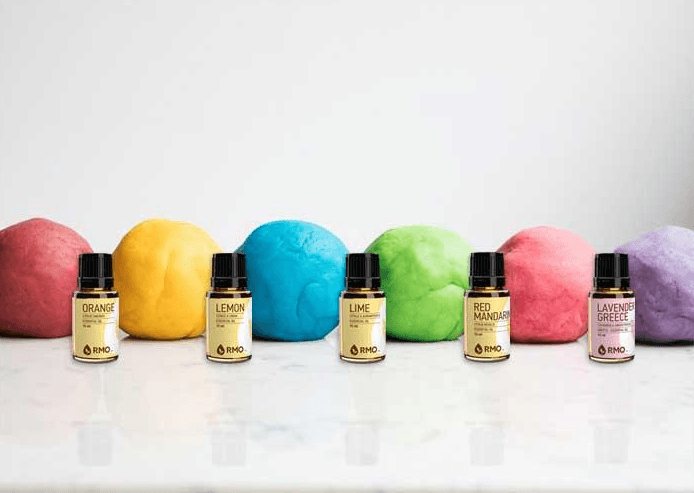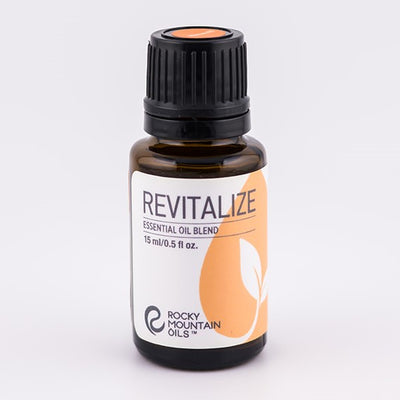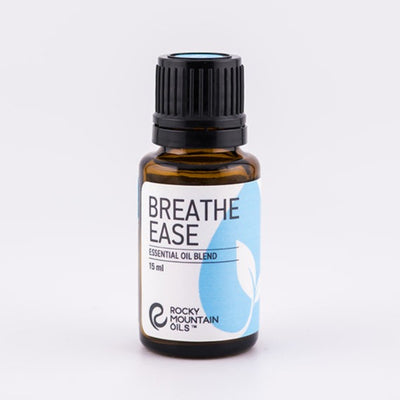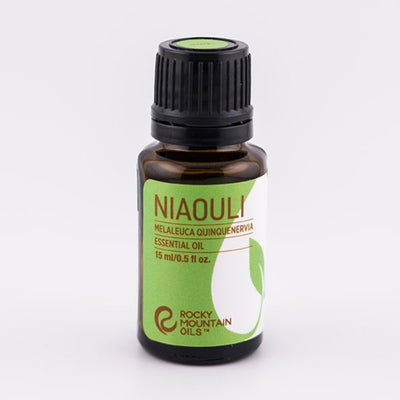What Happens if You Use Expired Essential Oils: Understanding the Consequence
The Essence of Essential Oils
Essential oils have become a tack in many households, renowned for their therapeutic and aromatic properties. These concentrated plant extracts offer a myriad of benefits, ranging from relaxation to invigoration. However, like all-natural products, essential oils have a limited shelf life. In this article, we'll explore what happens if you use expired essential oils, delving into safety concerns, changes in chemical composition, and much more.

Understanding Essential Oils
What Are Essential Oils?
Essential oils are volatile and aromatic compounds emanating from plants. They are removed using different methods, such as steam distillation or cold pressing. Each oil captures the distinct fragrance of the plant it comes from, along with the specific therapeutic properties associated with its unique chemical composition.
Common Uses and Benefits
These oils have extensive applications in aromatherapy, massage therapy, and skincare. They are renowned for their capacity to induce relaxation, enhance mood, and even offer relief from specific health issues. Whether it's the soothing properties of lavender or the refreshing scent of peppermint, each oil delivers its unique range of advantages.
Jump here to know the risks of using an expired oil. You can jump to the “Safety Concerns with Expired Oils” section.
The Shelf Life of Essential Oils
How Long Do They Last?
Typically, essential oils can last between one to five years, depending on the type of oil and how it's stored. Factors like light, heat, and air exposure can significantly impact an oil's shelf life.
Storage Tips for Longevity
For optimal preservation of essential oils and to extend their shelf life, it is advisable to keep them stored in opaque, airtight containers away from direct sunlight and heat. This precaution helps prevent oxidation and ensures the long-term retention of their therapeutic properties.
Decoding the Expiration of Essential Oils
Identifying Expired Oils
Essential oil is considered expired when it has oxidized or deteriorated to the point where its therapeutic qualities are diminished. Signs of expiration include changes in color, consistency, and aroma.
Chemical Changes in Expired Oils
What Happens at the Molecular Level?
Over time, the chemical composition of essential oils changes. This can lead to the formation of new, potentially harmful compounds or the loss of beneficial ones.
Safety Concerns with Expired Oils
Potential Risks
Using expired essential oils can pose several risks, including skin irritation, allergic reactions, and reduced effectiveness. In some cases, the breakdown products of the oils can be more harmful than the original compounds.
Below are some examples:
- Skin Irritation: Expired oils may cause increased skin sensitivity, leading to redness, itching, or rash, as the degraded compounds can be more aggressive on the skin.
- Allergic Reactions: Over time, the alteration of the oil's chemical structure can introduce new allergens or increase the potency of existing ones, raising the risk of allergic responses.
- Reduced Therapeutic Effectiveness: As essential oils age, their active compounds can evaporate or degrade, diminishing their therapeutic benefits and making them less effective for intended uses.
- Toxicity Increase: The breakdown products of some oils can be more toxic than the original compounds, posing risks of toxicity when inhaled, ingested, or applied to the skin.
- Contamination: Expired oils are more likely to harbor bacteria or fungi, especially if they have been improperly stored or if the container integrity has been compromised.
Aromatic Alterations: Scent and Quality
How Expiration Affects Aroma
Expired essential oils can undergo changes in scent due to factors like oxidation, volatility, chemical breakdown, and contamination. Over time, their once vibrant and clear aromas can become dull, off-putting, or completely altered, affecting their effectiveness and appeal for aromatherapy and other uses.
Therapeutic Effects: Do They Diminish?
Effectiveness of Expired Oils
As essential oils degrade, their therapeutic properties may diminish. This means that the oil may no longer provide the desired health benefits or may require a higher quantity to achieve the same effect.
Skin Reactions and Allergies
Risks of Topical Application
Using expired essential oils on your skin may result in adverse reactions, including rashes, burns, or heightened sensitivity. It is necessary to exercise caution and conduct a patch test before using any essential oil, primarily if it has surpassed its expiration date.
The Risk of Rancidity and Mold Growth
Understanding the Dangers
Rancidity and mold growth are severe concerns with expired oils. Rancid oils can produce unpleasant odors and potentially harmful compounds, while mold can lead to health risks, particularly for those with allergies or respiratory issues.
Proper Storage for Longevity
Maximizing Shelf Life
To maximize the longevity of your essential oils, store them in an excellent, dimly lit location. Preserve them in their original containers or dark glass bottles to shield them from light and air exposure.
Is It Ever Safe to Use Expired Essential Oils?
Weighing the Risks and Benefits
While it's generally not recommended to use expired essential oils, there may be situations where they can still be used safely. For instance, oils with minor changes in aroma but no visible signs of spoilage might be suitable for specific applications, such as cleaning or fragrance diffusers.

Alternatives to Discarding Expired Oils
Creative Uses
Instead of throwing away expired oils, consider using them in household cleaning solutions, potpourri, or as a fragrance for linens. These alternative uses can give a second life to oils that are no longer suitable for therapeutic use.
Eco-Friendly Disposal of Expired Oils
Responsible Disposal Methods
When it comes to disposing of expired essential oils, make sure to do so in a responsible manner. Refrain from pouring them down the drain or releasing them into the environment. Instead, consult your local waste management facility for guidance on the proper disposal of hazardous materials, or here are some useful tips:
- Take to a Hazardous Waste Facility: Contact your local hazardous waste facility for specific instructions on disposing of expired oils, ensuring they are handled safely and do not harm the environment.
- Use Absorbent Material: Soak up the expired oils with an absorbent material like cat litter, sand, or sawdust, and then dispose of it in a sealed container as per your local waste disposal guidelines.
- Recycle Containers: Clean and recycle the containers that hold the oils, if permissible, to reduce waste and promote recycling efforts.
SAFETY: Following local regulations for hazardous waste disposal is crucial for safety and environmental protection. Improper disposal can lead to pollution and other environmental issues. Consulting local waste management authorities is the most reliable method to ensure the safe and accurate disposal of expired oils, as regulations and facilities may vary by location.
DIY Test: Identifying Expired Oils
Simple Home Methods
At home, you can conduct straightforward tests to verify if your essential oils have gone wrong. Pay attention to any alterations in their scent, color, or texture. These signs can assist you in determining if your oil remains suitable for use.
For a more reliable assessment of whether your essential oils have expired, consider these additional DIY methods, while keeping in mind that professional testing is more accurate:
- Paper Test for Consistency: Place a drop of oil on a piece of plain white paper and let it dry. If it leaves an oily ring, it might indicate that the oil has begun to degrade and develop heavier, potentially rancid compounds. Pure essential oils usually don't leave a permanent oily mark.
- Clarity Inspection: Hold the oil container against a light source and look for any cloudiness or sediment. Pure essential oils should be clear, and any cloudiness or sediment could indicate that the oil has aged or become contaminated.
- Container Integrity Check: Examine the container for any signs of deterioration, such as a rusting metal lid or a disintegrating rubber dropper. Deterioration can indicate that the oil has been degrading the container materials, potentially affecting the oil's quality.

Summary:
Is it OK to use expired essential oils?
Using expired essential oils is generally not recommended. While essential oils do not necessarily "expire" in the same way that food does, they can degrade over time, losing their potency and therapeutic benefits. Expired essential oils may not provide the desired aroma or therapeutic effects, and in some cases, they could even cause skin irritation or adverse reactions.
It's important to check the expiration date on the bottle if available and store essential oils in a cool, dark place away from sunlight and heat to prolong their shelf life. If an essential oil has a strong, unpleasant odor or appears cloudy, it's a sign that it may have gone bad and should be discarded. To ensure the best results and safety, it's advisable to use fresh, unexpired essential oils for aromatherapy and other purposes.
What is the validity of essential oils?
The validity of essential oils varies depending on several factors. Firstly, it's essential to consider the source and quality of the oil. Pure, high-quality essential oils extracted through proper methods tend to have a longer shelf life and maintain their therapeutic properties for several years. However, the specific shelf life can vary between different oils, with some, like citrus oils, having a shorter validity due to their volatile nature.
Proper storage is also crucial; essential oils should be stored in dark glass bottles, away from heat, light, and air exposure to extend their validity. Additionally, essential oils can lose their potency over time, affecting their effectiveness for aromatherapy or therapeutic purposes. Therefore, it's advisable to use essential oils within their recommended validity period, which is often indicated on the product label, to ensure optimal results.
How do you know if essential oils are safe?
To determine the safety of essential oils, it is crucial to consider several factors. Firstly, it's essential to research and choose reputable brands that offer pure, high-quality oils. Look for oils that have undergone third-party testing for purity and potency, as this helps ensure they are free from contaminants and adulterants.
Additionally, always follow proper dilution guidelines, as undiluted essential oils can be irritating to the skin or mucous membranes. Conduct a patch test on a small area of skin to check for any allergic reactions before using a new essential oil. Keep in mind that some essential oils are not safe for children, pregnant or nursing women, or pets, so consult with a qualified aromatherapist or healthcare professional for guidance in such cases.
Lastly, respect recommended usage guidelines, as overuse or excessive exposure to certain essential oils can lead to adverse reactions. Safety is paramount when working with essential oils, so it's essential to educate oneself and exercise caution when using them.
Frequently Asked Questions
How can I tell if my essential oil has expired?
Look for changes in color, consistency, and aroma. If the oil smells rancid or looks cloudy, it's likely expired.
Can expired essential oils still be used for aromatherapy?
It's not recommended, as their therapeutic properties may be diminished or altered.
What are the risks of using expired essential oils on my skin?
You may experience skin irritation, allergic reactions, or other adverse effects.
Can I extend the shelf life of my essential oils?
Yes, by storing them properly in dark, airtight containers away from heat and light.
Are there eco-friendly ways to dispose of expired essential oils?
Yes, contact your local waste management facility for guidelines on disposing of hazardous materials like essential oils.
Can I use expired essential oils in a diffuser?
While it's generally safer to use fresh oils in a diffuser, expired oils can sometimes be used for their fragrance, provided they have yet to go rancid or show signs of mold growth.
Conclusion: Essential Wisdom on Expired Oils
In conclusion, while expired essential oils may not always be harmful, it's necessary to approach their use with caution. Understanding the risks, changes in composition, and safe disposal methods can help you make informed decisions about your essential oil use.




